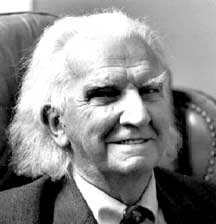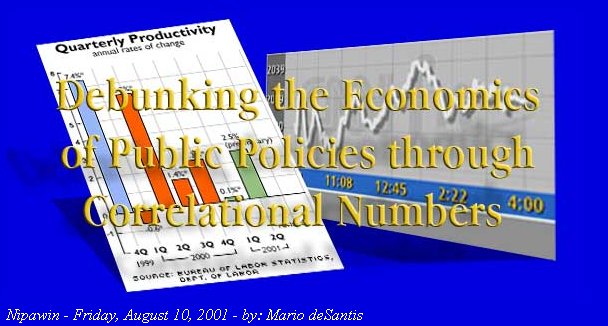Learning Stories
by
Mario deSantis
mariodesantis@hotmail.com
“I am a Canadian, free to speak without fear, free to worship in my own way, free to stand for what I think right, free to oppose what I believe wrong, and free to choose those who shall govern my country.” - -The Rt. Hon. John Diefenbaker, Canadian Bill of Rights, 1960
“The whole judicial system is at issue, it's worth more than one person.”--Serge Kujawa, Saskatchewan Crown Prosecutor, 1991
“The system is not more worth than one person's rights.”--Mario deSantis, 2002
Ensign Stories © Mario deSantis and Ensign
|
|
 "We
cannot 'ask' an electron where it is without changing its position.
Social systems have Heisenberg principles all over the place, for we
cannot predict the future without changing it"-- Kenneth
Boulding "We
cannot 'ask' an electron where it is without changing its position.
Social systems have Heisenberg principles all over the place, for we
cannot predict the future without changing it"-- Kenneth
Boulding
Our economic policies are guided by gathering information about the Gross Domestic Product (GDP) and all the related social sub-components such as savings, investments, demographics, labour force, unemployment rate, education,... and so forth. And specifically, in Canada we have Statistics Canada providing us every day with a myriad of statistical information about the performance of the economy and our quality of life. And then we have our social researchers and economists who use this statistical information to find correlation about different sets of numbers referring to different social phenomena and use these correlation numbers to make predictions and assist our politicians in setting our social and economic policies. So for example, if we find that the economy is sluggish and the interest rate charged on borrowed money is relatively high, then the Bank of Canada can decide to lower the interest rate it charges its clients; with lower interest rates businesses can subsequently borrow more money and make more investments in their productive resources with the result of increasing the production of goods and services. The setting of current public economic policies is therefore centered on the study of statistical correlation between different social and economic phenomena. Our social and economic system is so brainwashed into the belief that our future is in the correlation numbers produced by our economists and social scientists that we have lost our own intelligence to be able to create our own future. Our future is not in our creative forces anymore, our future is now 'predetermined' and made more 'uncertain' by the correlation numbers produced by our social scientists and economists, the so called experts. And this is what professor Robert Sternberg has to say about statistical correlation
In my previous article "We must stop the economic mantra of productivity growth" we debunked the theory that economic productivity is a proxy for our quality of life, and this finding confirms Sternberg's understanding that to draw causal inferences from correlational data is statistically incorrect. Yet we have mainstream economists all over the world rallying around the credo that productivity growth is the cornerstone of economic growth and wealth creation. Instead, wealth creation rests on the intelligence of people to create healthier communities where people cooperate and share common values, a common language, and care for each other for a sustainable future. Wealth creation is not productivity growth, that is it is not the efficient substitution of capital for our labor in the absence of a sustainable future and of all those things called social and spiritual. Some references Related social and economic articles published by Ensign Kenneth E. Boulding 1910-1993, http://csf.colorado.edu/authors/Boulding.Kenneth/ Skeptic Magazine Interview With Robert Sternberg on The Bell Curve, Interview by Frank Miele, From Skeptic vol. 3, no. 3, 1995, pp. 72-80 http://www.skeptic.com/03.3.fm-sternberg-interview.html Productivity and Economic Performance. An Overview of the Issues, by Marc T. Law, 1999, The Fraser Institute http://www.fraserinstitute.ca/publications/pps/37/section_01.html Toward an Economics of Sustainability, John E. Ikerd, University of Missouri, May, 1997 http://www.geocities.com/RainForest/3621/IKERD.HTM |

 "anyone
who takes statistics knows, you can't draw any real causal
conclusions from correlational data. Lots of things correlate
with lots of things... To draw causal inferences from
correlational data is statistically incorrect... Another thing
they do, in comparing correlations, is that they don't take into
account the reliability and precision of the measures being
used. For example, almost every measure we use is a proxy for
something else."
"anyone
who takes statistics knows, you can't draw any real causal
conclusions from correlational data. Lots of things correlate
with lots of things... To draw causal inferences from
correlational data is statistically incorrect... Another thing
they do, in comparing correlations, is that they don't take into
account the reliability and precision of the measures being
used. For example, almost every measure we use is a proxy for
something else."